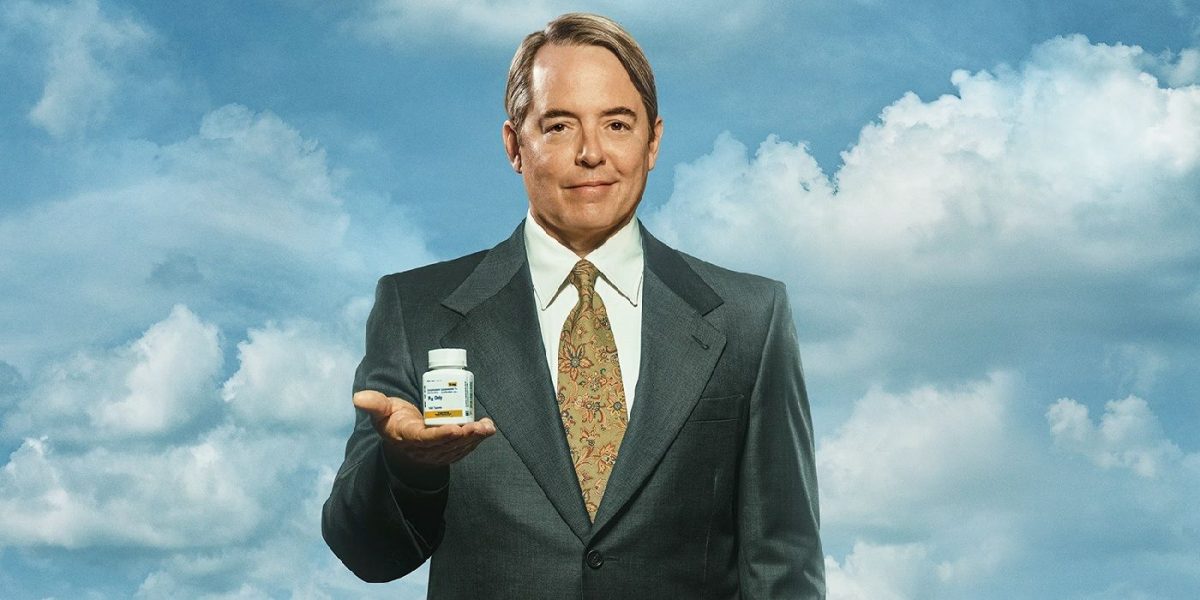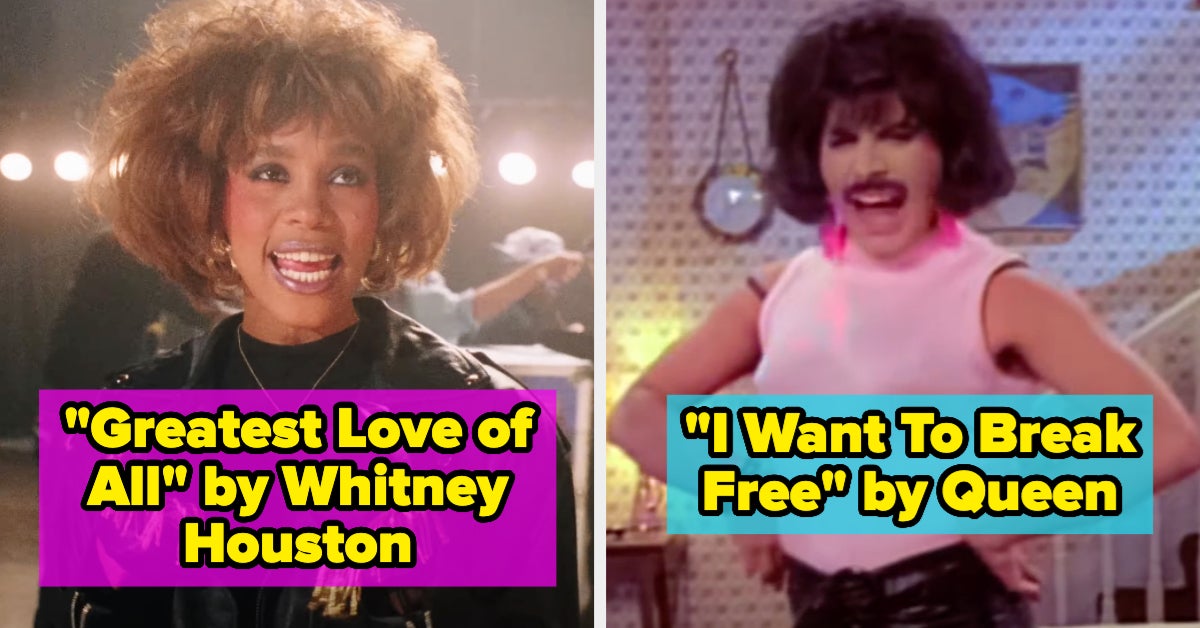
‘Painkiller’ Producers on the Opioid Epidemic and Exploring the Drug Trade
Aug 13, 2023
The Big Picture
The limited series Painkiller, based on real events and the book by Barry Meier, explores the origins of the opioid crisis and the devastating impact it has had on lives. The creators aim to reach as wide an audience as possible to raise awareness about the betrayal of public trust and the dangers of addiction to prescription painkillers. The inclusion of personal stories from those affected by the crisis adds a poignant and real element to the show, highlighting the need for greater understanding and prevention.
The limited Netflix series Painkiller, based on the book by Barry Meier and the New Yorker Magazine article “The Family that Built the Empire of Pain” by Patrick Radden Keefe, explores the origins of the opioid crisis in America and the destruction that it has left in its wake. Through a fictionalized retelling of events, the story illustrates how wealth, power, and greed led to mistruths that forever altered lives that were destroyed by the invention of OxyContin and the betrayal of public trust.
During this interview with Collider, executive producer Eric Newman and consulting producer Meier talked about why it’s important to get this story out to as wide of an audience as possible, what lies at the heart of this betrayal of public trust, putting all the pieces of this puzzle together, what Matthew Broderick brought to his performance as Richard Sackler, the billionaire senior executive at Purdue Pharma that started this horrendous ball rolling toward an epidemic, and the choice to include personal stories of those coping with grief due to the opioid crisis. Newman also talked about why he’s drawn to telling stories about the drug trade, and what viewers can expect from the upcoming Netflix series Griselda and Sofia Vergara’s performance.
Collider: Obviously, this is not easy subject matter. Eric, there was similar subject matter explored in Dopesick, and even though their story was told from different viewpoints, it had a lot of success and acclaim. So, as a producer, why did you feel like there was still more of this story to tell? What was it about the viewpoints in this telling of the story that most deeply spoke to you?
ERIC NEWMAN: Anyone who spends any time in this world, and no one has spent more time in this world than Barry [Meier] has, leaves it, I believe, with an obligation to get this story out to as many people as you possibly can. Our goal was always to make the most accessible version of this story, that tonally didn’t feel like heavy lifting and that wasn’t mired in the grief that, of course, characterizes a lot of the story. Our goal, and hopefully with an audience of the 270 million people that Netflix commands, is to get this in front of as many people as possible. The thing that we found, again and again, as recently as today, is that people aren’t getting the message. They’re not getting the information. It’s the same thing that happened in the late nineties, where that industry has sought to omit certain details that make it harder to sell opioids to people that you love. If you knew that this thing was addictive and could kill you, you might not give it to your 15-year-old for their broken arm. You might pay a little closer attention. And so, I feel that anyone involved in any show, documentary, or book on the subject, joins something of a crusade. My hope, sincerely, and I’m a competitive person, is that there’s another opioid show next year, that’s bigger than our show. In terms of reaching that audience, it’s that important.
Image via Netflix
I’m someone who was prescribed OxyContin for a medical procedure, but never took it because I don’t like taking medications that make me feel loopy, at all. And I feel very lucky that I never ended up taking even a single pill.
NEWMAN: You’re an exception. I have similar qualities. Most people listen to their doctor. And in some of these areas where it hit the hardest, that was the only person they listened to. The only authority in some of these towns was the local physician, and in many cases, it was the only college-educated person in town and, in many cases, it was the person who’s been with you and delivered you. When they tell you to take something, you take it. And when they tell you that you don’t have to worry about addiction, you believe it. That is at the heart of the biggest betrayal of public trust in history.
Barry, as you were hunting down this story and compiling what this eventually became, what was going through your head, along the way. I would imagine you had no idea what this would eventually become, what you would learn, and how all of these puzzle pieces would fit together. What was it like to keep uncovering more and more of that?
BARRY MEIER: As a journalist, you never know what you’re gonna find or what part of your work is going to endure. I was researching this story so long ago. I started in 2001, and as I began to piece it together, it was like being a detective. It was being an investigator. It was discovering that the studies that the company was using to convince doctors that this drug OxyContin couldn’t be abused and couldn’t cause addiction, they were basically fraudulently portraying those stories. I had to go to these archives to pull these old, dusty, forgotten studies out. I discovered that Purdue was hiding information that showed the entire basis of its advertising campaign, that Oxycontin’s special coating would protect it from abuse, was false. They had an earlier drug that had a forgotten study in Canada that showed it could be easily abused, and that’s what happened with OxyContin, but they covered it up. They knew that, if they ever let this information out, it would knock the pins out from underneath this billion dollar advertising campaign that they had launched. So, I felt like I was a detective. I was discovering the clues. I was putting together the case. That’s the case that I presented, when I wrote Pain Killer in 2003.
Image via Netflix
I’m guessing when you wrote that, you weren’t thinking about how it could be turned into a movie or a TV series, at some point down the road.
MEIER: It’s funny because, when I wrote the book, it actually was optioned, at that time, by Anonymous Content, who wanted to turn it into a movie. They were so drawn by the story. The problem was that, at that point in time, it was still several years away before Purdue Pharma was found guilty of the very crimes that I was showing they had committed in Pain Killer. People in Hollywood were going, “They haven’t been convicted. Can we say they’re bad guys?” And so, by the time they were convicted, that train had left the station and another 15 years would go by before the project came to (executive producers) Micah Fitzerman-Blue and Noah Harpster. And then, (executive producers) Alex Gibney and Patrick Radden Keefe got involved, and it eventually ended up at Netflix with Eric [Newman].
One of the most interesting things about watching this is that Richard Sackler is such a difficult and challenging person to embody. I can’t imagine what a task that is, for an actor. What’s it like to find an actor to play someone like that and to see that performance? What most struck you about Matthew Broderick?
NEWMAN: The choice to go with Matthew, and I’m incredibly grateful that he was receptive. He’s phenomenal in the show. It’s incredibly challenging to play someone about whom most people who know anything about this story have made up their minds about who this person is. The challenge, therefore, is how you hook people into his story. I had a fair amount of success doing drug traffickers for six years, and a number of different traffickers. The challenge was also there, except it was compounded in the case of Richard Sackler, with a rich guy trying to hold onto his money, which is an endlessly unsympathetic idea, if you’re thinking about a character. God forbid, you lose your money. And it was someone who didn’t have a world view that anyone could relate to and that supported his efforts. In the case of Pablo Escobar and some of these drug traffickers, there was a class struggle that they could convince themselves they were waging, and it’s an American problem. “They’ve certainly exported enough of their violence down here, so the least we can do is give them what they’re asking for, which is cocaine.” This was different. And so, to find a character that you can invest in and not immediately be repulsed by required, arguably, one of the most likable actors of the past 40 years. When you think about his body of work, with the exception of Election, you love him. He’s phenomenal in that movie, but in terms of a character that you’re drawn to, he’s perfect, in that regard. It added a certain whimsy to a guy who is, arguably a monster.
MEIER: I met Matt on set, and he was amazing as Richard. We were talking and he said to me, “Well, what’s your sense of who Richard Sackler is? Who is this person?” And I said to him, “Well, I don’t know.” I never spoke with him. I never spoke with Arthur Sackler either. But the impression that I came away with is that they were flip sides of the same coin. Arthur Sackler was someone who never believed that he was wrong and would never be convinced that he was wrong. Richard Sackler was someone who was afraid to acknowledge that he was wrong. They were both prone to self-delusion, but it became much more profound and much more dangerous, when it happened with Richard Sackler.
Image via Netflix
Eric, you’ve done Narcos and Narcos: Mexico, you now have Painkiller, and you have Griselda coming out, which are all in this drug world, in various different ways. Are you surprised that this has become your own bizarre multiverse?
NEWMAN: Yeah, sometimes I am. I often tell myself that my path is the right path because it’s my path. I found myself drawn to these drug stories in the late nineties. I saw a 60 Minutes piece and I tracked down the players in it, which was in ‘97. It’s an interesting intersection of money and morality and politics, and you have greed through all of it. It’s one of the great opportunities for mankind to do the wrong thing, and they almost always do. I find, as a crucible, something that tells us who we are, our failure to treat it as a health care crisis and instead make it a law and order crisis that blames the victims who are addicted to drugs, and the unbelievable money that it generates and what people can buy with that money. I definitely feel like there is a life or death element to it that creates real drama. With Griselda, with Escobar, with Gallardo, I was always able to find a way, not to excuse them, but to explain what their rationale was. It becomes harder with this story, which also makes it more interesting, in terms of a degree of difficulty.
What are you hoping for, with the perspective of Griselda, where it is a woman at the center of it?
NEWMAN: What’s interesting about Griselda is that, every time her story has ever been told, it’s been by a man and often an enemy. It is that age-old adage that a badass man is a boss and a badass woman is a bitch. What we get from Sofia [Vergara]’s unbelievable performance is a deeply sympathetic person who is stuck in a bad spot, raising three children and fleeing an abusive relationship. Painkiller is similarly structured, and I think all my shows are, where they mirror the effects of the drug, slightly. In the beginning, there’s a euphoric quality of, “This is good. It’s gonna be okay. We’re pulling ourselves up by our bootstraps.” The ride it takes you on is that, before long, you’ve gone too far and you’re falling apart and you can’t shake the thing, whatever your addiction was, whether it’s money, power, or the security that some of these guys sought by making a union with the government in Mexico. There’s always a Rubicon that, once you’ve crossed, you can’t get back from. I think Griselda’s story, even in her attempts to not be a victim, she is victimized. I have to say, I love that character so much. I’m so excited for people to see it because Sofia is spectacular in it.
Image via Netflix
By putting real people who have been affected by OxyContin, you start each episode of Painkiller with a gut punch. Why did you feel that was important to do? Did you feel like it just really created that personal connection?
NEWMAN: When we got into the obligatory disclaimers that I put in the front of all my shows, I generally don’t think twice about. But in this case, Pete [Berg] and I, particularly, were really struggling with the implication that we were letting them off the hook, before the show even started. If you were going to defend yourself, it was very easy to say, “Just look at the filmmakers themselves, who are telling us that this is a work of fiction,” and elements of it are fictionalized. We can’t know what someone was thinking. As far as I know, Richard Sackler never battled it out with the ghost of his uncle. As much as I like to think that happened, it very likely didn’t happen. We really tasked the Netflix legal department with like, “How do we get around this? Can we not do it? Can we do it in an inventive way that perhaps undercuts the efforts to dispel the truth of our show?
So, Pete came up with this idea, to have it be read by the survivors of victims of OxyContin. And then, in the course of two days, I went out to a number of homes in the L.A. area. Someone asked, “Was it hard to find these people?,” and the sad trust is that it was very easy because they’re everywhere. They were lovely To go into their homes and hear about their children, and then to record them, was difficult, but also incredibly gratifying. I think it brings an air of reality to this. These people are long past rage. They’ve moved into some higher form of love, and also a deep desire that this message reaches other parents with the information that they wish they had 10 years ago, when the doctor said, “I’m gonna give you some pain pills for this broken arm,” and that was the beginning of their tragedy. That was a very effective thing, I think, for us to do. I’m incredibly proud of their participation.
Painkiller is available to stream at Netflix.
Publisher: Source link
These Are '80s Songs That Gen X'ers And Old Millennials Grew Up On, And There Is No Way Anyone Under 27 Has Heard All Of These
And if you are over 40, then you probably remember when these were brand-new and not songs kids are discovering on TikTok.View Entire Post › Disclaimer: This story is auto-aggregated by a computer program and has not been created or…
Jan 12, 2025
Tom Holland Asked Zendaya’s Dad for Permission Before Proposing
Tom Holland wove the perfect engagement for Zendaya. Less than a week after the Spider-Man actress debuted a 5-carat diamond ring on her left ring finger at the 2025 Golden Globes, Tom's father Dominic Holland confirmed the couple's engagement, sharing a few parts about the special day, including one important detail.…
Jan 12, 2025
Jennifer Lopez Finally Understands Mi Gente Latino Meme
Jennifer Lopez Finally Understands Mi Gente Latino Meme Kicking off 2025, J.Lo is now promoting Unstoppable, a new biography drama in which she stars alongside Moonlight actor Jharrel Jerome. At the 2011 American Music Awards, Jennifer won Favorite Latin Artist…
Jan 11, 2025
Tom Holland's Dad Shares Insight Into Zendaya Engagement
Tom Holland became the greatest showman for his proposal to Zendaya. Just days after the Spider-Man actress turned heads at the 2025 Golden Globes with a 5-carat ring on that finger, Tom's dad... Disclaimer: This story is auto-aggregated by a…
Jan 11, 2025











